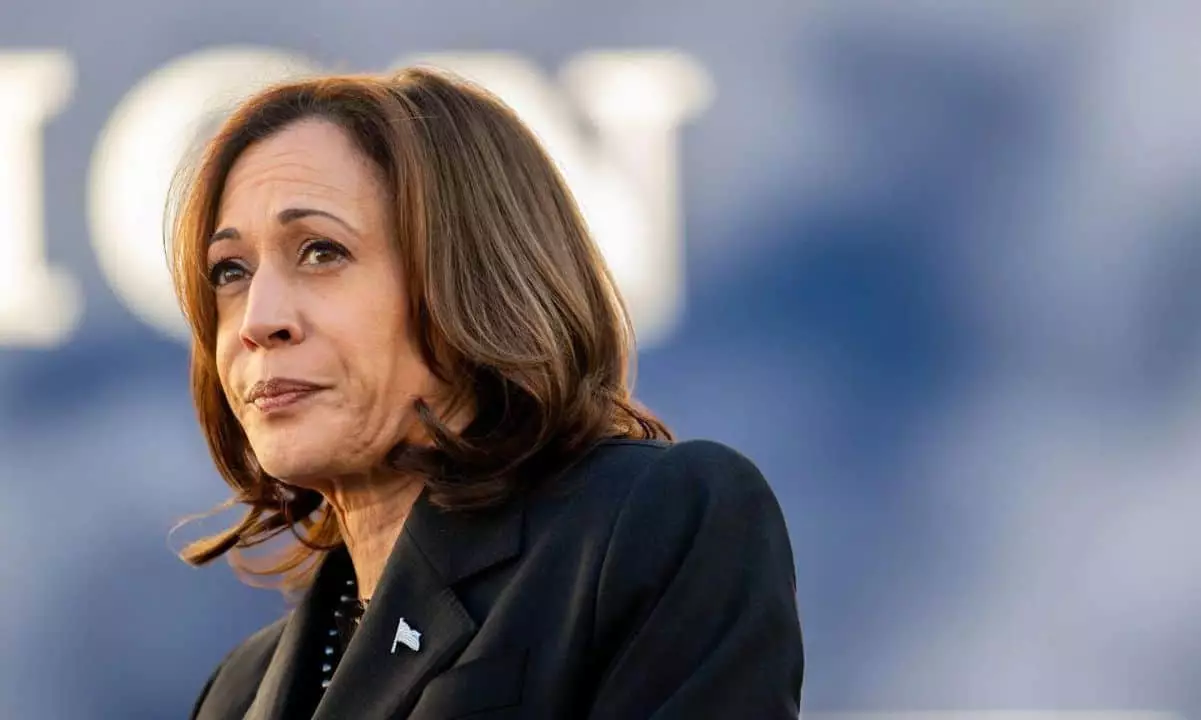The ongoing intertwining of cryptocurrencies and politics has created a complex and contentious landscape. Recently, a significant incident involving an organization named Stand With Crypto, which is backed by Coinbase, emphasizes the shifting perceptions around political endorsements for digital currency. This incident raises essential questions about how politicians are evaluated for their cryptocurrency policies and the implications of such evaluations.
Stand With Crypto had initially positioned Vice President Kamala Harris as a supporter of cryptocurrencies, assigning her a respectable “B” grade based on her remarks made during a New York fundraising event on September 22. During this event, Harris expressed her intention to foster innovative technologies, explicitly mentioning both artificial intelligence and digital assets. Such statements, albeit vague, were interpreted by Stand With Crypto as somewhat affirmative towards the cryptocurrency sector, prompting an upgrade in her ranking.
This initial assessment was critical, as it indicated a potential alignment between Harris and a growing pro-crypto movement. Comparatively, the website ranked former President Donald Trump with an “A,” showcasing a clearer and stronger support for digital assets. While the disparity in engagement between the two candidates seemed stark—Trump having made over 21 statements on the subject versus Harris’s solitary declaration—Stand With Crypto’s decision to award her a favorable grade appeared to spur controversy within the cryptocurrency community.
As anticipated, the favorable rating for Harris encountered substantial backlash from cryptocurrency advocates and experts, who viewed her singular statement as insufficient to warrant a positive evaluation. Prominent voices in the community, such as Bitcoin enthusiast Wayne Vaughan, criticized Harris’s positioning, characterizing her stance as largely neutral. Vaughan’s perspective highlighted a critical view shared by many, which was that the Biden-Harris administration’s apparent skepticism toward crypto should reflect negatively on Harris’s ranking.
Additionally, legal experts from the crypto domain echoed similar sentiments. Michael Cairo from Horizons Law and Consulting described Stand With Crypto’s grading system as fundamentally flawed, emphasizing that Harris’s contributions to the conversation surrounding digital assets were minimal at best and did not substantiate the high rating she initially received. The implied notion was that vague endorsements could not equate to genuine support and that the rankings should reflect substantial, actionable pro-crypto policies rather than non-committal statements.
In the aftermath of the criticism, Stand With Crypto revised its ranking methodology, deciding to revise Harris’s standing and implement a new scoring system for all politicians. The group’s Executive Director, Logan Dobson, articulated the change in strategy, indicating that the evaluations would now require far more specific and detailed commitments to earn a positive grade. The intent appears to be a more transparent approach that distinguishes between weak rhetoric and strong advocacy within political spheres.
The adjustment made to Harris’s profile indicated a considerable shift from a decisive endorsement to a more cautious approach; the new designation of “not enough information” suggested a rejection of the previous credence placed on ambiguous statements regarding her support for digital assets. It indicates an acknowledgment that a single statement cannot form a solid basis for determining a politician’s overall stance on cryptocurrency issues.
The controversy surrounding Harris’s ranking sheds light on broader implications concerning the relationship between political endorsements and the cryptocurrency industry. As the digital asset sphere continues to grow, the need for authentic political support becomes paramount. The incident serves as a reminder that vague endorsements may not only misrepresent a politician’s stance but also risk disillusioning the community that champions these assets.
Looking forward, the evolution of Stand With Crypto’s evaluation criteria could create pathways toward more substantive dialogues between politicians and the cryptocurrency community. As organizations like Stand With Crypto refine their criteria for alignment with political figures, the hope is that they will encourage more meaningful engagements concerning digital asset regulations and policies. This unexpected fallout may catalyze a more robust advocacy structure for cryptocurrencies in the political arena, reflecting the genuine aspirations of the community and the regulatory clarity they seek.
The exchange between Stand With Crypto and the political landscape not only highlights the complexities of crypto-based evaluation but also reinforces the necessity for accountability and clarity in the relationships between politicians and the digital asset community.















